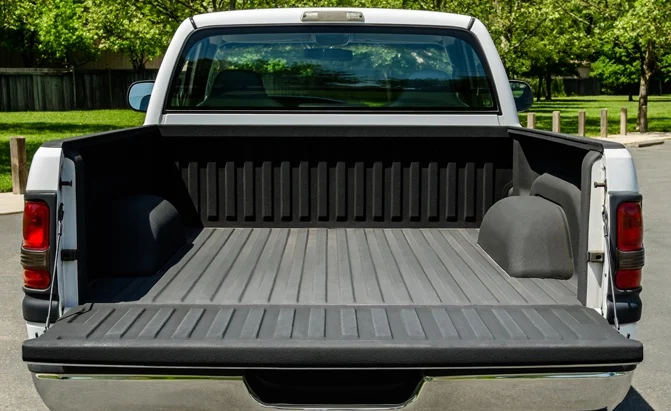As explained below, these types of modifications may put you at risk should you experience a defect, nonconformity, or problem with your spray on bedliner. By modifying your vehicle, you are leaving the door open for the manufacturer to claim that the problems you experienced were the result of the modification and not due to defects in factory supplied equipment. So, before you make any of the above types of modifications to your vehicle, consider the following:
Before you contemplate having a lift kit installed on your vehicle, it is essential that you understand that the lift kit may interfere with the suspension of your vehicle. Even the slightest variance in your suspension may cause your tires to wear unevenly or cause other serious damage to the vehicle. Additionally, more advanced lift kits may also adjust the vehicle’s ride height electronically, which may conflict with electronic and or software components in the vehicle. If you experience problems with your suspension and have installed a lift kit, the manufacturer may blame the problem on the lift kit even if the lift kit was not the cause of the problem. This could lead to you being denied coverage of a needed repair to your vehicle, which could be a factor in bringing a successful lemon law claim.
Electrical and electronic modifications to your vehicle may include alarms, sound systems, blue tooth systems, lighting systems, and much more. Inevitably the installer will need to power these components, and often this may include tying it in to the existing wiring system often referred to as “splicing.” Many of the mechanics who do this work are very skilled. Other mechanics and some third party installers may do very poor work. If the installation is done poorly, it could lead to serious electrical problems throughout your vehicle. Further, even if you request a dealer to do these modifications, please be aware that the dealer often sublets this type of work to a third party. Finally, even if the accessories are properly installed, if you experience unrelated electrical problems with your vehicle, the manufacturer may contend that the source of your problems is due to the aftermarket electrical accessories you had added. So, think twice before you have anything installed into the electrical system of your vehicle.
It is not uncommon for people buying a new car, especially those buying a sporty model, to ask for decorative rims or wider tires. Some vehicles will come equipped with modified rims and tires. However, generally the seller will not discuss with the buyer the potential risk to the vehicle’s suspension and alignment caused by aftermarket tires and rims. Further, aftermarket tires and rims may lead to the tires wearing prematurely or unevenly if not the right size. Before you purchase your vehicle, make sure it is equipped with only factory supplied equipment, or tires and rims that are the correct size.
The sales person at the dealership very rarely volunteers anything about warranty coverage and how it is affected by modifications. If you do ask whether your warranty will be affected or voided, especially before you have purchased the vehicle, the sales person will usually promise that there will be no affect whatsoever so they can close the deal. Seldom do they provide this promise in writing. However, what you must know is that modifying your vehicle may void your warranty with the vehicle’s manufacturer.
For example, Ford Motor Company makes this clear in its 2012 New Vehicle Limited Warranty. In the section called, “What is not covered under the New Vehicle Limited Warranty?’ the warranty states damage caused by alteration or modifications are not covered. Ford’s warranty makes clear that it will not provide coverage for the failure of components in the vehicle caused by:
1. Alterations or modifications of the vehicle, including the body, chassis, or components, after the vehicle leaves the control of Ford Motor Company
2. Tampering with the vehicle, tampering with the emissions systems or with the other parts that affect these systems (for example, but not limited to exhaust and intake systems)
3. The installation or use of a non-Ford Motor Company part other than a certified emissions part) or any part (Ford or non-Ford) designed for off-road use only installed after the vehicle leaves the control of Ford Motor Company, if the installed part fails or causes a Ford part to fail. Examples include, but are not limited to lift kits, oversized tires, roll bars, cellular phones, alarm systems, automatic starting systems and performance-enhancing powertrain components or software and performance “chips.”


